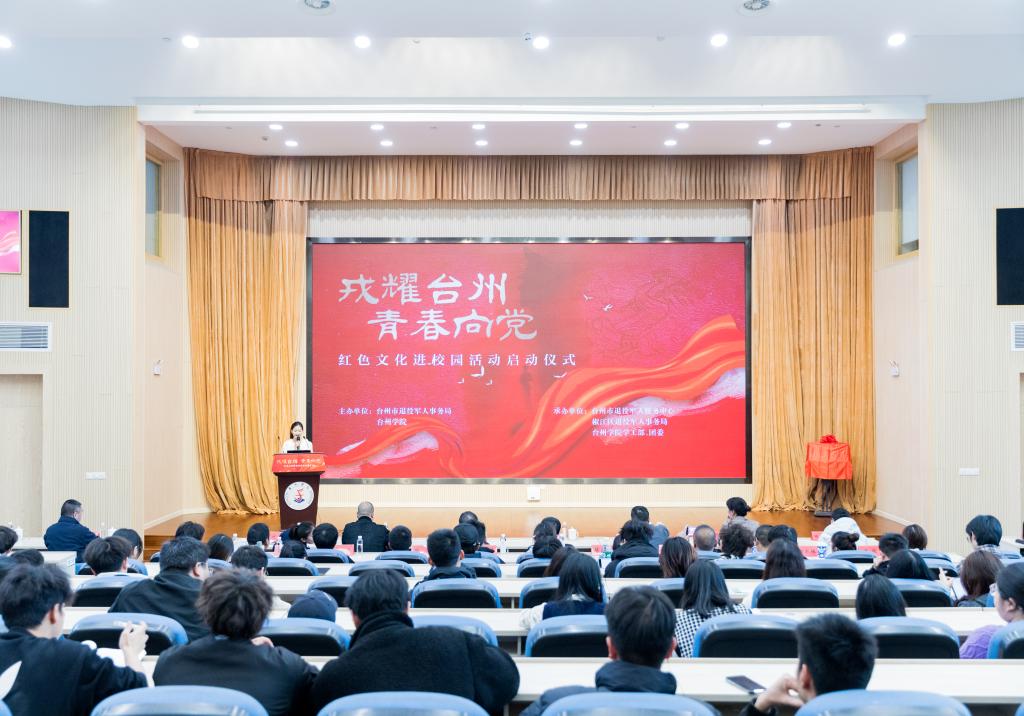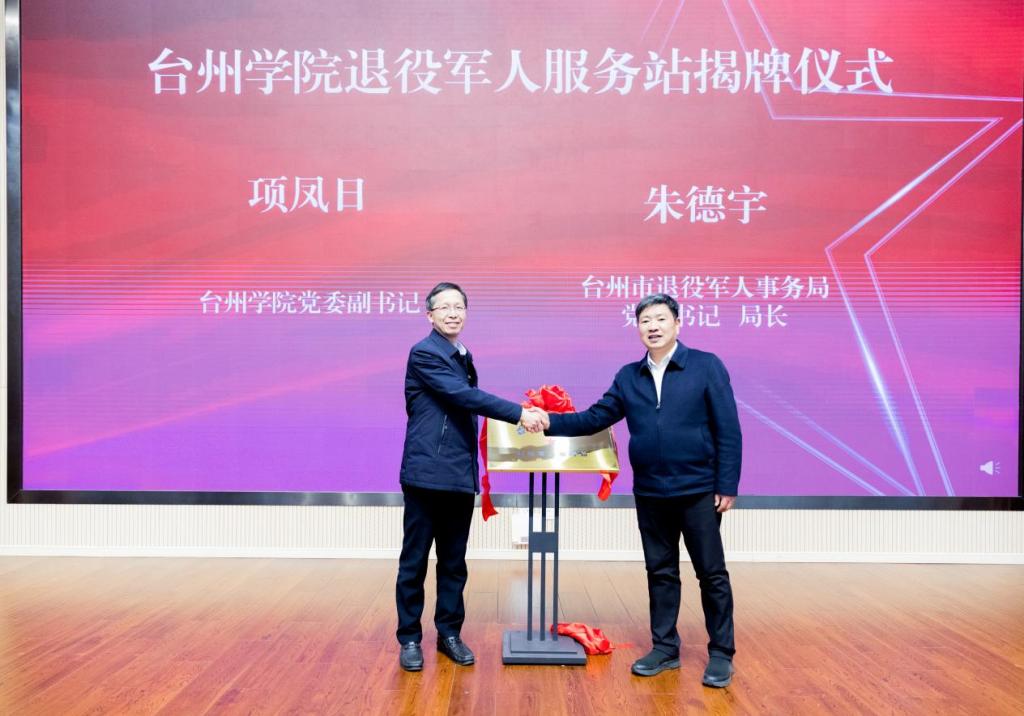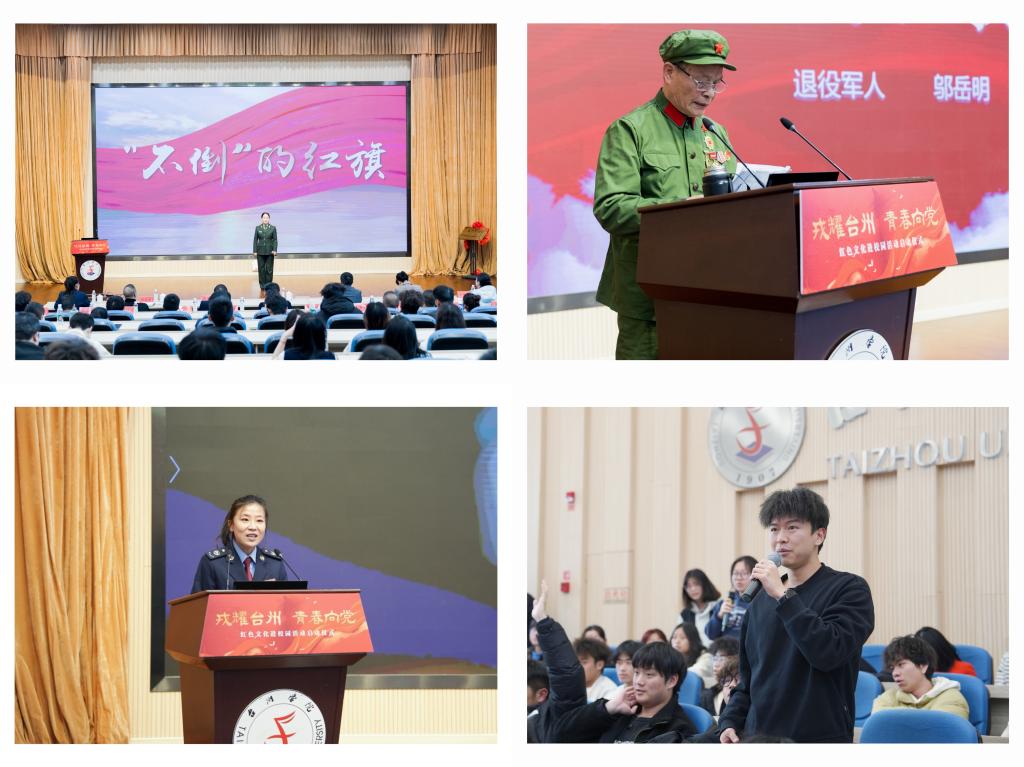The opening ceremony of the Red Culture Campus Initiative themed “Military Glory Shines in Taizhou, Young People Love the Party” jointly organized by the Taizhou Veterans Affairs Bureau and TU, was held at the university’s International Conference Hall on the afternoon of March 20. Key officials from the bureau and the university, alongside nearly 200 attendees—including veteran representatives, martyrs’ memorial lecturers, and faculty and student delegates—gathered to mark the occasion.

Event highlights
Xiang Fengri, Deputy Secretary of the CPC TU Committee, emphasized in his speech that TU has long integrated red culture education into its moral and academic curriculum. Initiatives such as establishing the Taizhou Dachen Island Reclamation Spirit Research Center, forming veteran student associations, offering red culture courses, organizing themed lectures, retracing revolutionary trails, and implementing preferential policies for major transfers for veteran students have solidified the role of red heritage in shaping character. He urged students to uphold revolutionary traditions, strengthen their convictions, pursue knowledge diligently, and embrace responsibility with courage.

Inauguration Ceremony
A pivotal moment came as Zhu Deyu, Party Secretary and Director of the Taizhou Veterans Affairs Bureau, and Xiang Fengri jointly unveiled the plaque for the “TU Veterans Service Station,” marking a new phase in university-locality collaboration to support veterans.

Red spirit lectures
The event came to a climax during the red legacy storytelling session. Xu Yi, Head of the Education and Promotion Department at the Yijiangshan Island Liberation Martyrs’ Memorial Park, recounted the unwavering faith of revolutionary martyrs. Wu Yueming, a veteran of the Counterattack in Self-Defense against Vietnam, revived the battlefield’s fervor and loyalty. Liu Qing, honored as a National Most Admired Veteran, shared insights into the mission of modern-day servicemembers. Their poignant narratives drew repeated applause and moved the audience deeply. A subsequent policy Q&A session further bridged the gap between students and red culture, energizing the hall with lively exchanges.
The initiative aims to preserve revolutionary heritage, promote patriotic spirit, and instill patriotic fervor and a sense of mission among youth. TU will deepen red culture immersion through thematic lectures, practical activities, and policy outreach, fueling the cultivation of a new generation rooted in China’s revolutionary legacy.